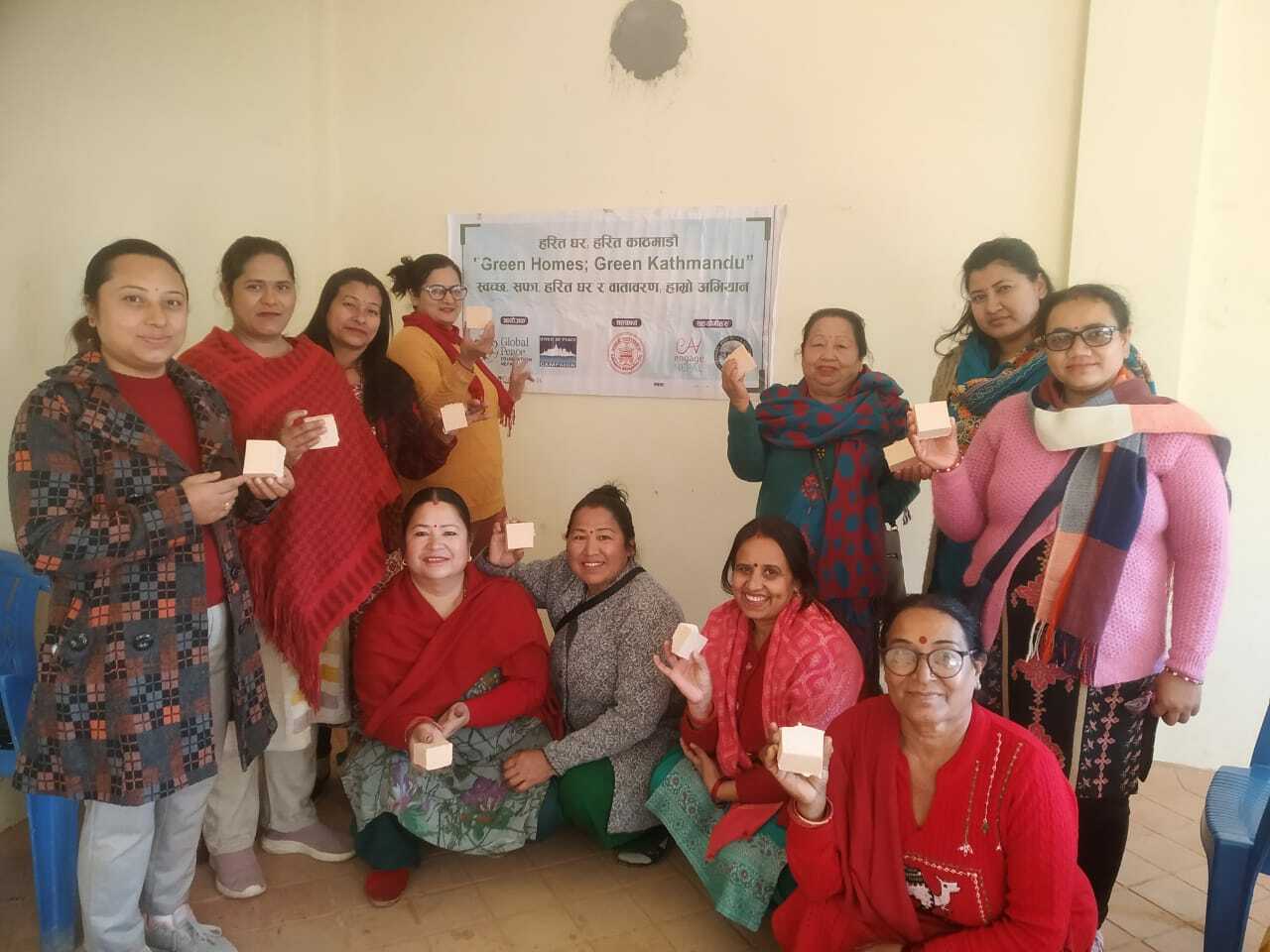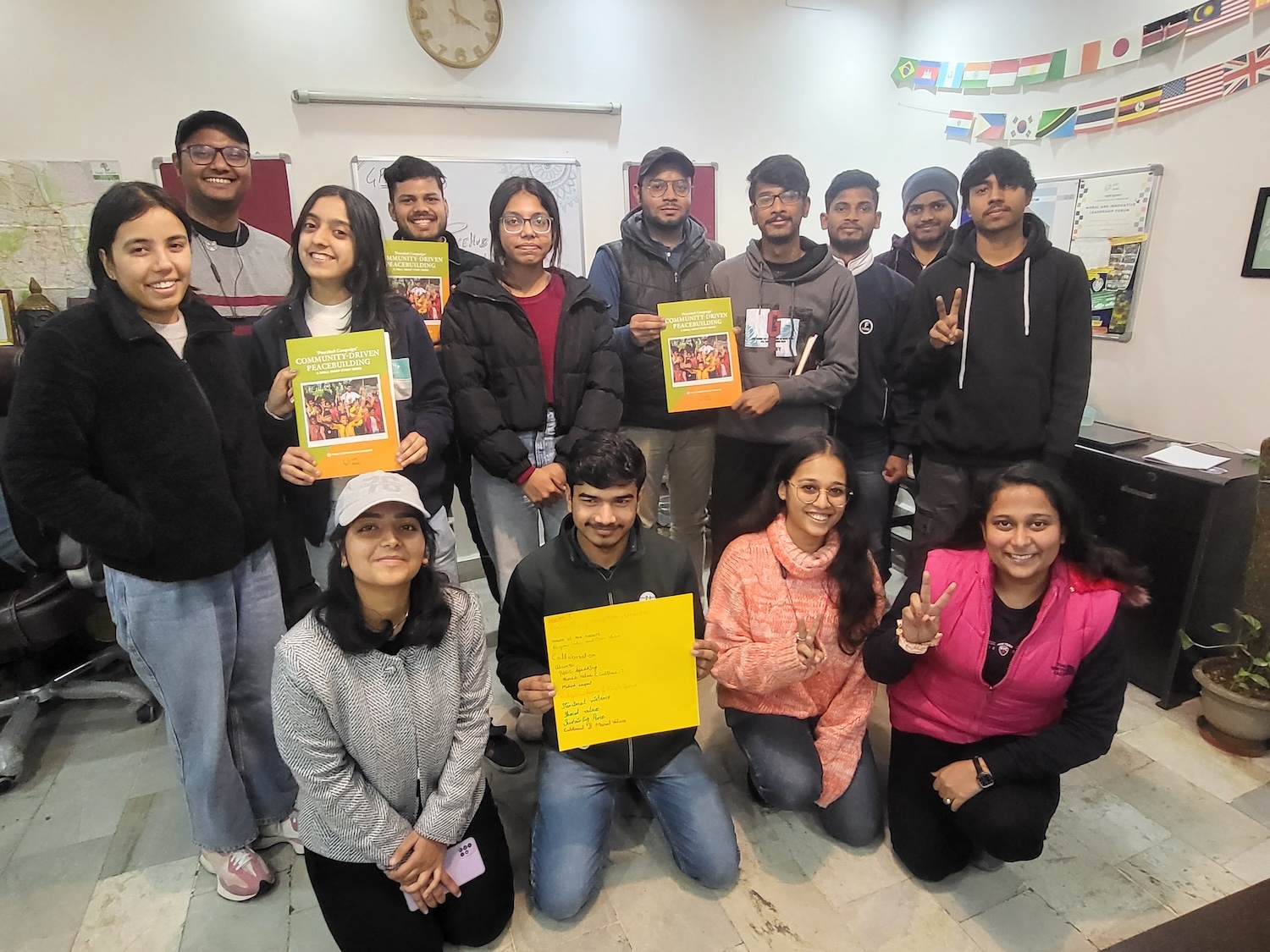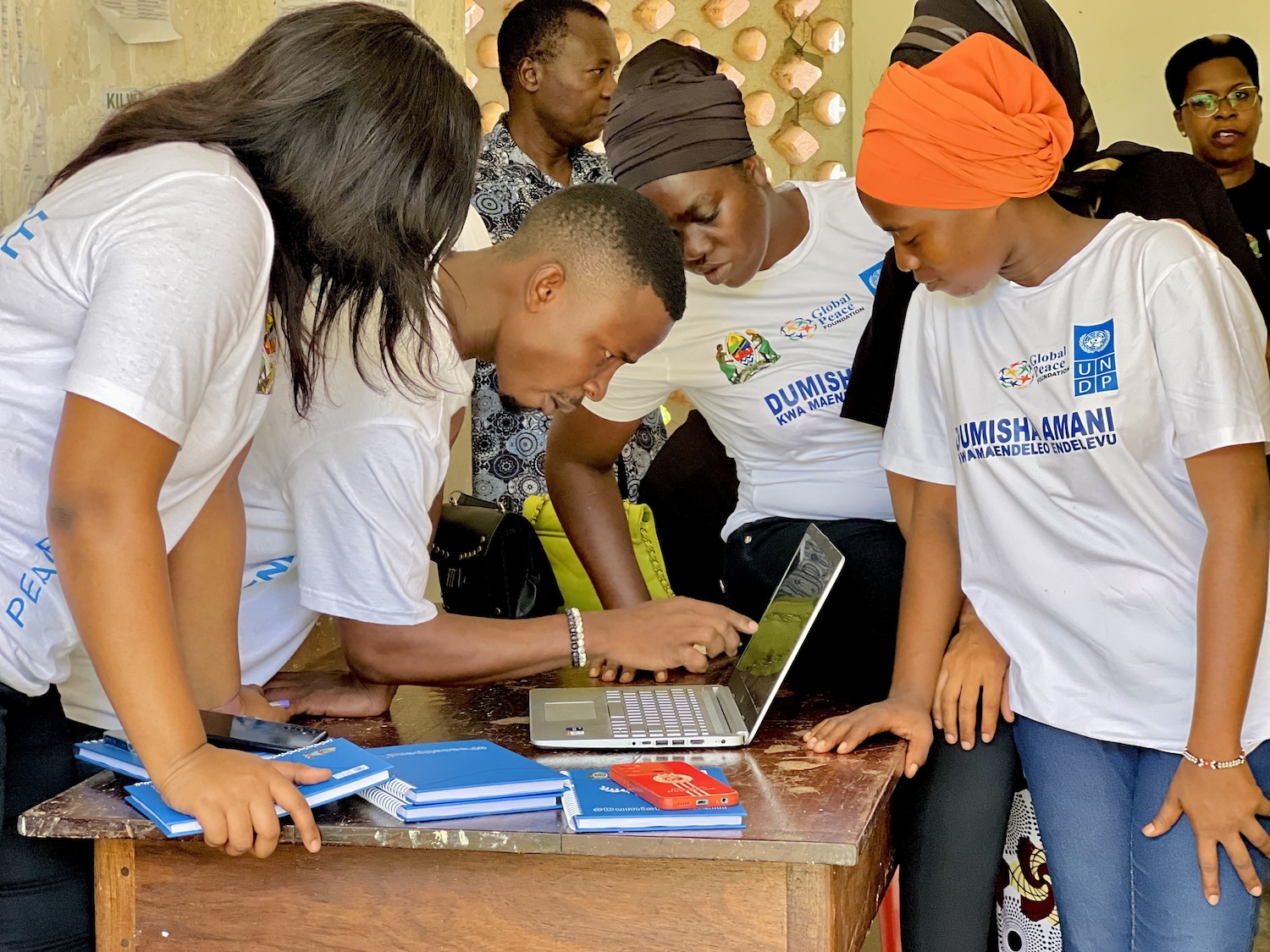by Sia Marupa, Staff at African Green Movement and Climate Leader at Climate Reality
The East Africa region had experienced enormous tragedies of intra-state and interstate conflicts. Each conflict has taken a huge toll: human lives lost, millions of refugees, economic instability and climate change impacts. Tanzania has been actively involved in facilitating conflict resolution and transformation in our region and other countries such as Burundi, Kenya, etc.
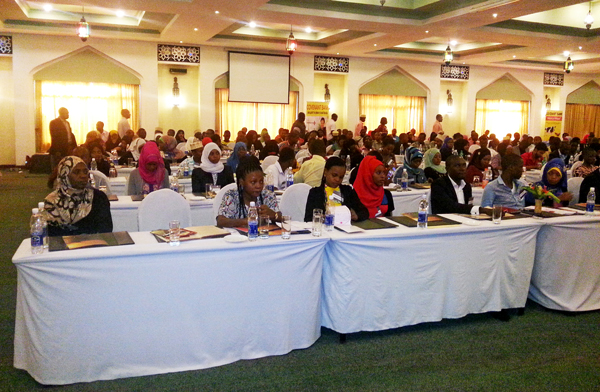
Young leaders throughout East Africa gathered in Zanzibar for the Youth Summit held during the 2015 Global Peace Leadership Conference.
Despite the narrative of Africa rising with her diverse natural resources, human capital and multiple efforts to battle corruption and secure peace, good governance, peace and security, there are many challenges that remain, leaving a large portion of the region’s 180 million people struggling under extreme poverty and devastating health issues. Experience shows that a mere change of regime doesn’t translate into fundamental resolution. A deeper change in leadership is necessary.
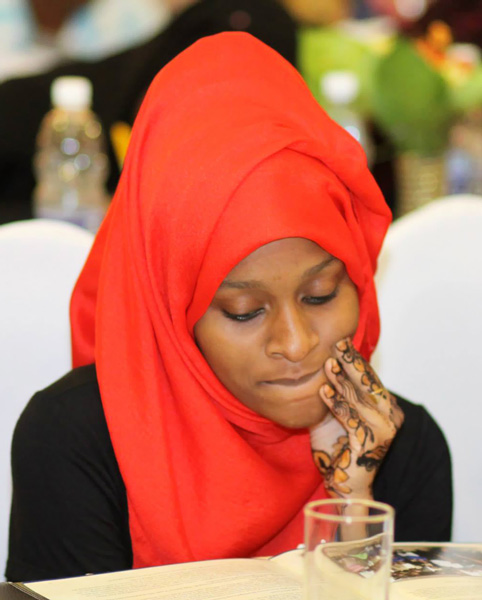
East African youth learn about moral and innovative leadership at the Youth Summit in Zanzibar.
The recent Global Peace Youth Summit held in Zanzibar provided a platform for diverse, energetic young leaders from around East Africa could connect with each other based on moral vision rooted in our diverse spiritual traditions to promote leadership that can secure peace, security and sustainable development. The summit sought to unite these vibrant young leaders in broad front to prioritize the prevention of conflicts and wars, extremism, violence and terrorism and build harmony and economic prosperity.
In East Africa, we have our share of the wave of extremism that is spreading across the world, like the atrocities in Kenya instigated by the extremist group Al-Shabaab that present a threat to the stability of the entire country. In the light of these challenges, a call such as the one put out by at the Global Peace Youth Summit for prompt action and a united front, is needed to create political, social and economic justice to the communities.
The summit documented the deliberate and fruitful resolutions covered under the themes of moral and innovative leadership, regional integrations, youth entrepreneurship, and service as a key to sustainable development and youth engagement.
Unfortunately most of East African youth are not well informed, with a lack of ethical and creative leadership made up of non-risk takers in entrepreneurship, irrelevant to community services and professional jobs, which are a result of such factors such as poor education system, corruption and embezzlement.
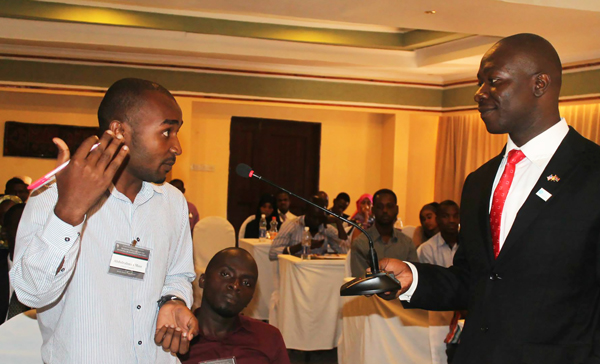
Young leaders participate in discussions with speakers during the Youth Summit in Zanzibar.
To deal with such problems, the education system must focus on changing youth mindset and develop programs and curriculums which will assist youth to develop relevant skills to individual and community prosperity and empower them based on experiences of competitive global market.
Within a justifiable framework, I urge integrated cooperation with government agencies to address the issues at hand and modify school curriculums in order to yield productive outcomes such as a skilled labor workforce with global market capabilities and peacebuilding.
With compassion I strongly request this platform to be a liaison between government to facilitate synergy with public-private partnership and youth to bestow opportunities of East African youth in a holistic manner to be able to contribute to sustainable development at both national and global level.

